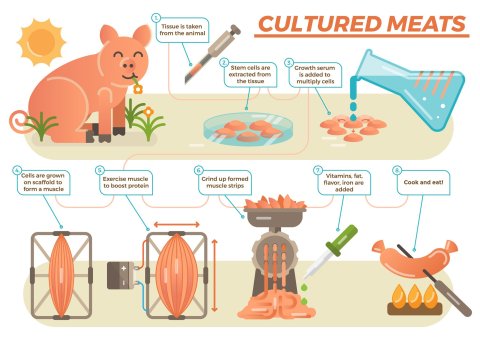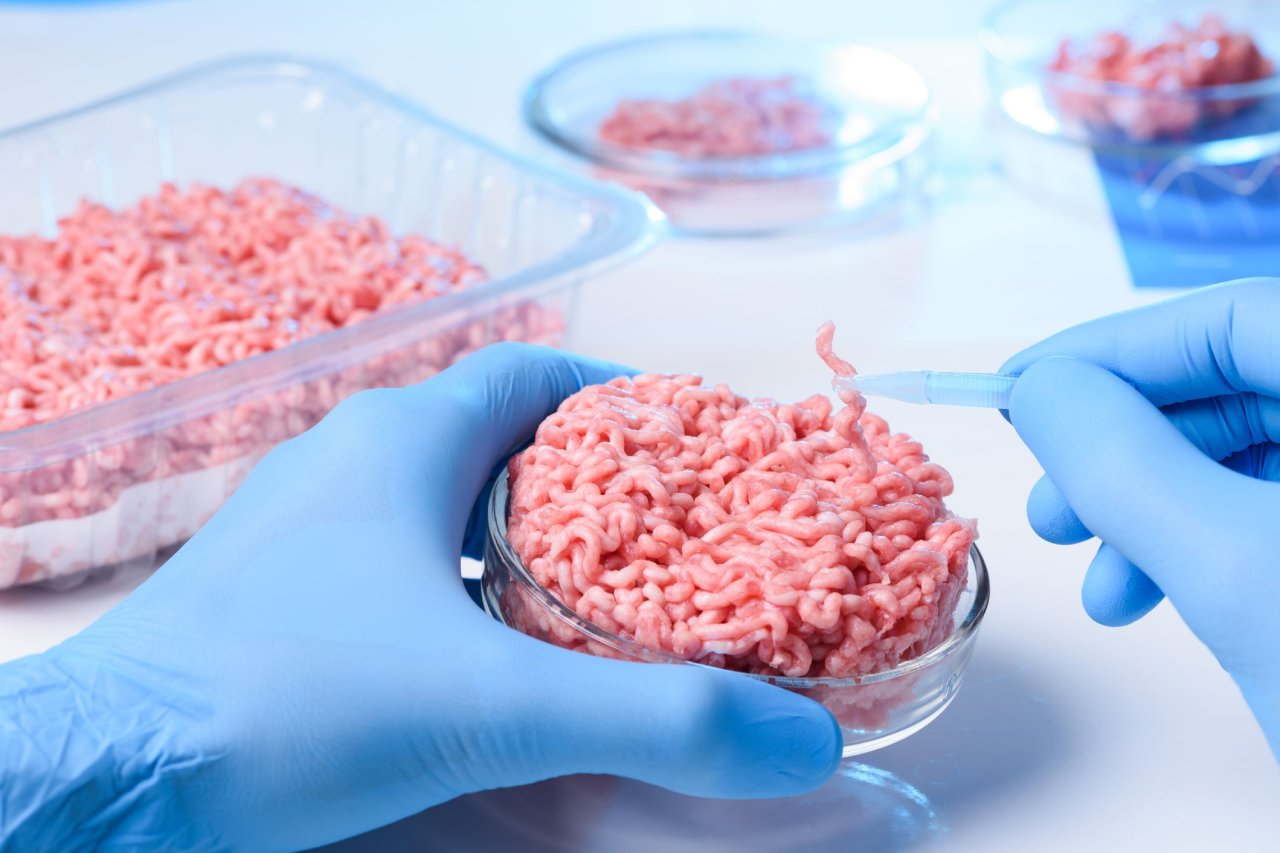"If we can grow meat without the animal, why wouldn't we?"
This question wasn't from a science fiction writer or the head of The Humane Society of the United States. Rather, this came from Tom Hayes toward the end of his tenure as the CEO of Tyson Foods. Yes, that Tyson. Synonymous with "chicken," Tyson is by far the largest producer of meat in the U.S.
Why would the CEO of Tyson want to remove the animal from meat production? In part because meat production will be more efficient that way—by growing meat without bones, feathers, or hair, we can get more meat with the same resources. And good thing too, as United Nations scientists say that raising and killing animals for food is "one of the major causes of the world's most pressing environmental problems, including global warming, land degradation, air and water pollution, and loss of biodiversity."
With a growing world population, there are simply not enough resources to scale up current meat production to feed everyone.
And at a gut level, most of us would prefer slaughter-free meat produced without the animal anyway.
In 2017, an animal advocacy think tank found that a majority of individuals were uncomfortable with how animals are used in our current food system. They also found that nearly half actually want to ban slaughterhouses.
Many in the meat industry found it impossible to believe that so many meat eaters wanted to outlaw meat production. So Oklahoma State did a similar survey, assuming they would find that the public doesn't really want to get rid of slaughterhouses. Yet Oklahoma State also found that more than two-thirds of respondents were uncomfortable with the treatment of animals. And 47 percent wanted to ban slaughterhouses.
Fortunately, we are approaching the day where Tom Hayes's slaughter-free meat is a reality.
Companies around the world are rapidly bringing down the cost of animal-free meat—real meat grown directly in a facility similar to a brewery, rather than as part of an animal. This "cell-based meat" (aka, clean meat) is the meat everyone is used to, right down to the DNA. In addition to being more efficient, there will be no fecal contamination. And because the meat will be grown in clean conditions, it won't involve the chronic use of antibiotics.
With all these benefits, the answer to "why wouldn't we?" becomes even more obvious.

Although there are technical challenges to scaling up production to be cost-competitive with conventional meat, no scientific breakthroughs are necessary to bring meat without the animal to our plates.
Perhaps the main question now is which country will lead the way. The governments of Japan, the Netherlands and Israel have already invested in research and startups focused on producing this kind of meat. Given the magnitude of the global problems that clean meat can help address, those efforts abroad deserve to be applauded. But we should also care about the success of clean meat here in the U.S.
Fortunately, there are signs that the U.S. government wants to remain at the forefront of bringing high-quality protein to the world. In a report to the White House, the National Academy of Sciences singled out clean meat as one of the technologies with particularly high growth potential.
Furthermore, Secretary of Agriculture Sonny Perdue has stated directly that the U.S. should nurture animal-free meat rather than let other countries take the lead. Talking to a meat industry trade group, Secretary Perdue stated that "we don't want this new technology to feel like they've got to go offshore or outside the U.S. to get a fair regulatory protocol." He later noted the importance of cell-based meat to keeping the U.S. prominent as a meat exporter: "Shouldn't we in the United States be about how we can grow and feed people more efficiently and more effectively … these techniques need to be embraced, not kept out."
And then just a few weeks ago, the U.S. Food and Drug Administration and the U.S. Department of Agriculture formally announced their plan for joint oversight of clean meat production within their current regulatory framework.
This announcement ended months of uncertainty and speculation, giving leading clean meat companies like Memphis Meats and JUST a clear signal that they will have a straightforward and fair path to market in the U.S. Given the many challenges humanity faces, it is thrilling to know we have an incredibly beneficial innovation within reach—one that won't require anyone to give up the foods they love.
If we listen to Tom Hayes and Secretary Perdue, we will recognize that not only should we embrace meat without the animal, we should do everything possible to bring animal-free meat to the world.
Jessica Almy is the Director of Policy at The Good Food Institute.
The views expressed in this article are the author's own.















